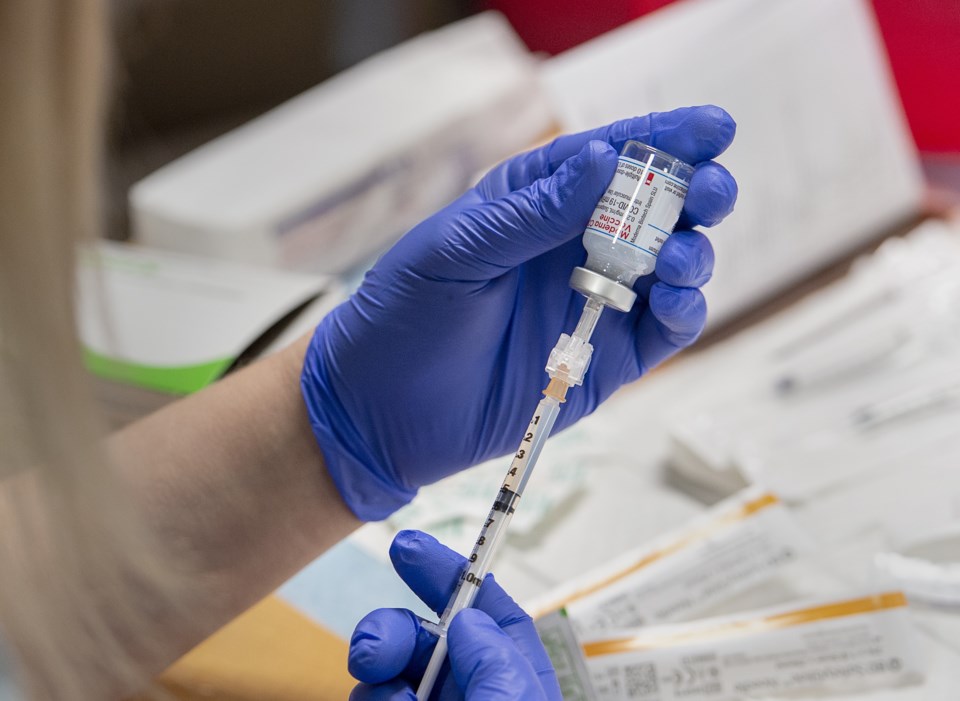TORONTO — Moderna says upcoming clinical trials for its COVID-19 vaccine will include Canadian children, but experts say it's unlikely students will receive one before the next school year in September.
The company announced details of its Phase 2/3 study of COVID-19 earlier this week. It’s expected to involve 6,750 healthy pediatric participants aged six months to 12 years.
Moderna says initial participants are based in the United States but that Canadian sites will be added as the trial progresses.
The biotech company says it hasn't yet chosen the Canadian sites, nor Canadian participants.
Moderna CEO Stephane Bancel says it's an important age group to study.
The trial will evaluate the safety and effectiveness of two doses given 28 days apart. Participants will be followed for one year after the second vaccination.
In addition to Moderna, Canada has approved vaccines by Pfizer-BioNTech and Oxford-AstraZeneca for adult use, although the Pfizer product can be used by people as young as 16.
Dr. Caroline Quach of the National Advisory Committee on Immunization said Tuesday that she expected to see trial data from Pfizer involving 12-to-15-year-olds in two-to-three months.
But she said she didn’t expect one would be ready and approved for Canadian children before the end of the year.
AstraZeneca has also started a trial with younger age groups, while Johnson & Johnson is expected to run a vaccine trial involving teens this spring in Toronto and Burlington, Ont.
But like Quach, Health Canada's chief medical adviser did not expect to have a vaccine ready for children by the time school starts in September.
"I think that timeline may be a bit optimistic," Dr. Supriya Sharma said earlier this month.
"The trials in children tend to be a bit slower to get up and running in terms of recruiting individuals. And then of course, we have to conduct the trials and then take that information and assess that.
"It’s not inconceivable that we might have some data in the summer, and potentially by the end of this calendar year we might have some indications in children, but that's still pretty optimistic."
This report by The Canadian Press was first published March 17, 2021.
Cassandra Szklarski, The Canadian Press
